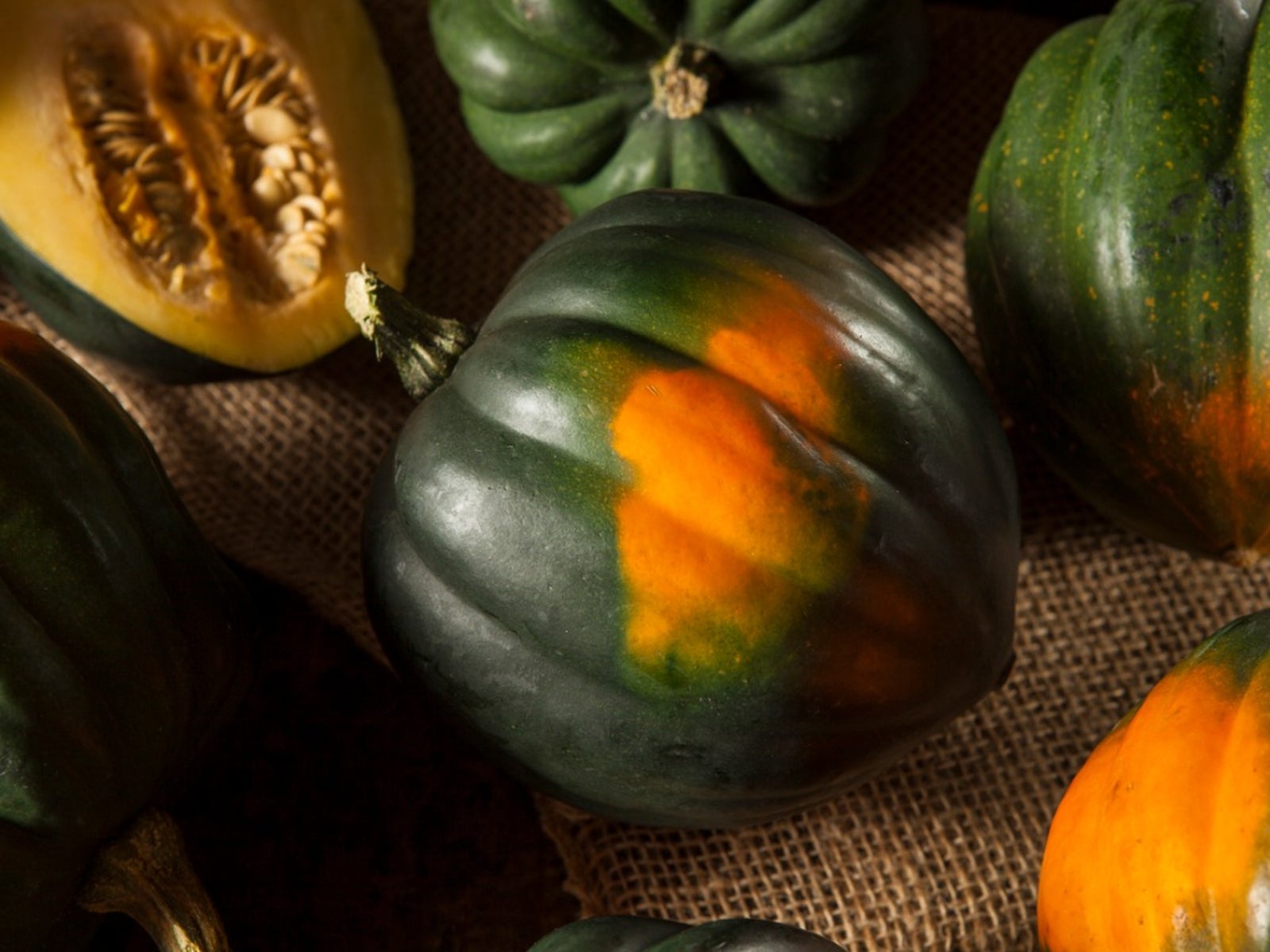How And When To Pick Acorn Squash


Sign up for the Gardening Know How newsletter today and receive a free copy of our e-book "How to Grow Delicious Tomatoes".
You are now subscribed
Your newsletter sign-up was successful
Acorn squash is a form of winter squash, grown and harvested much like any other type of winter squash variety. Winter squash differs from summer squash when it comes to harvesting. Acorn squash harvest takes place during the mature fruit stage once rinds have become tough rather than the more tender rinds found in summer squash varieties. This allows for better storage, as most types of winter squash are stored throughout the winter season once harvested.
When are Acorn Squash Ripe?
So when are acorn squash ripe and how do you know when to pick acorn squash? There are several ways you can tell that an acorn squash is ripe and ready to be picked. One of the easiest ways is by noting its color. Ripened acorn squash turns dark green in color. The portion that has been in contact with the ground will go from yellow to orange. In addition to color, the rind, or skin, of acorn squash will become hard. Another way to tell ripeness is to look at the plant's stem. The stem attached to the fruit itself will become withered and brown once the fruit has thoroughly ripened.
When to Harvest Acorn Squash
Acorn squash takes about 80 to 100 days to harvest. If you're going to store acorn squash rather than eat it right away, allow it to remain on the vine a little longer. This allows the rind to harden some more. Although it can stay on the vine for several weeks after becoming ripe, acorn squash is susceptible to frost. Frost damaged squash does not keep well and should be discarded along with those that exhibit soft spots. Therefore, harvesting acorn squash prior to the first heavy frost in your area is important. Generally, this takes place sometime in September or October. When harvesting acorn squash, carefully cut the squash from the vine, leaving at least a couple inches (5 cm.) of the stem attached to help preserve moisture.
Storing Your Acorn Squash Harvest
- Once your acorn squash has been harvested, store them in a cool, dry area. It will keep for several months if given the right temperatures. Usually this is between 50 and 55 degrees F. (10-13 C.). Squash does not do well in temperatures below or higher than this.
- When storing the squash, avoid piling them on top of one another. Instead, lay them out in a single row or layer.
- Cooked acorn squash will keep for short-term periods in the refrigerator. However, to keep cooked squash for longer periods, it's better to freeze it.
Vegetable Harvesting Essentials
- This hori hori knife from Amazon is perfect for cutting acorn squash stems
- The Fiskars Garden Harvest Basket from Amazon but also doubles as a colander, making it perfect for collecting, transport, and cleaning your vegetable harvests
- Prefer a hands-free harvesting approach? Consider a wearable harvesting bag, like this option from Amazon
Sign up for the Gardening Know How newsletter today and receive a free copy of our e-book "How to Grow Delicious Tomatoes".

Nikki Tilley has been gardening for nearly three decades. The former Senior Editor and Archivist of Gardening Know How, Nikki has also authored six gardening books.